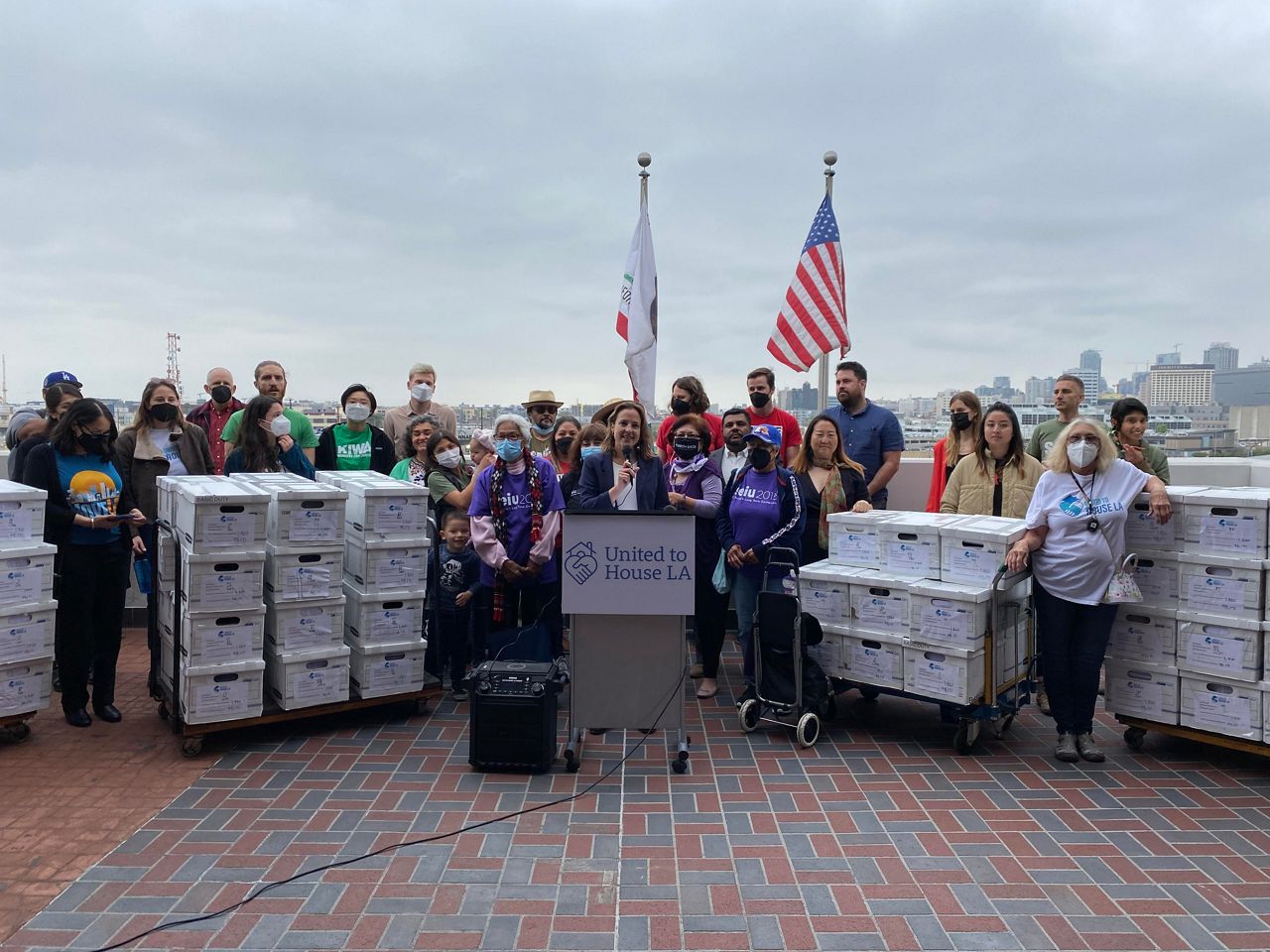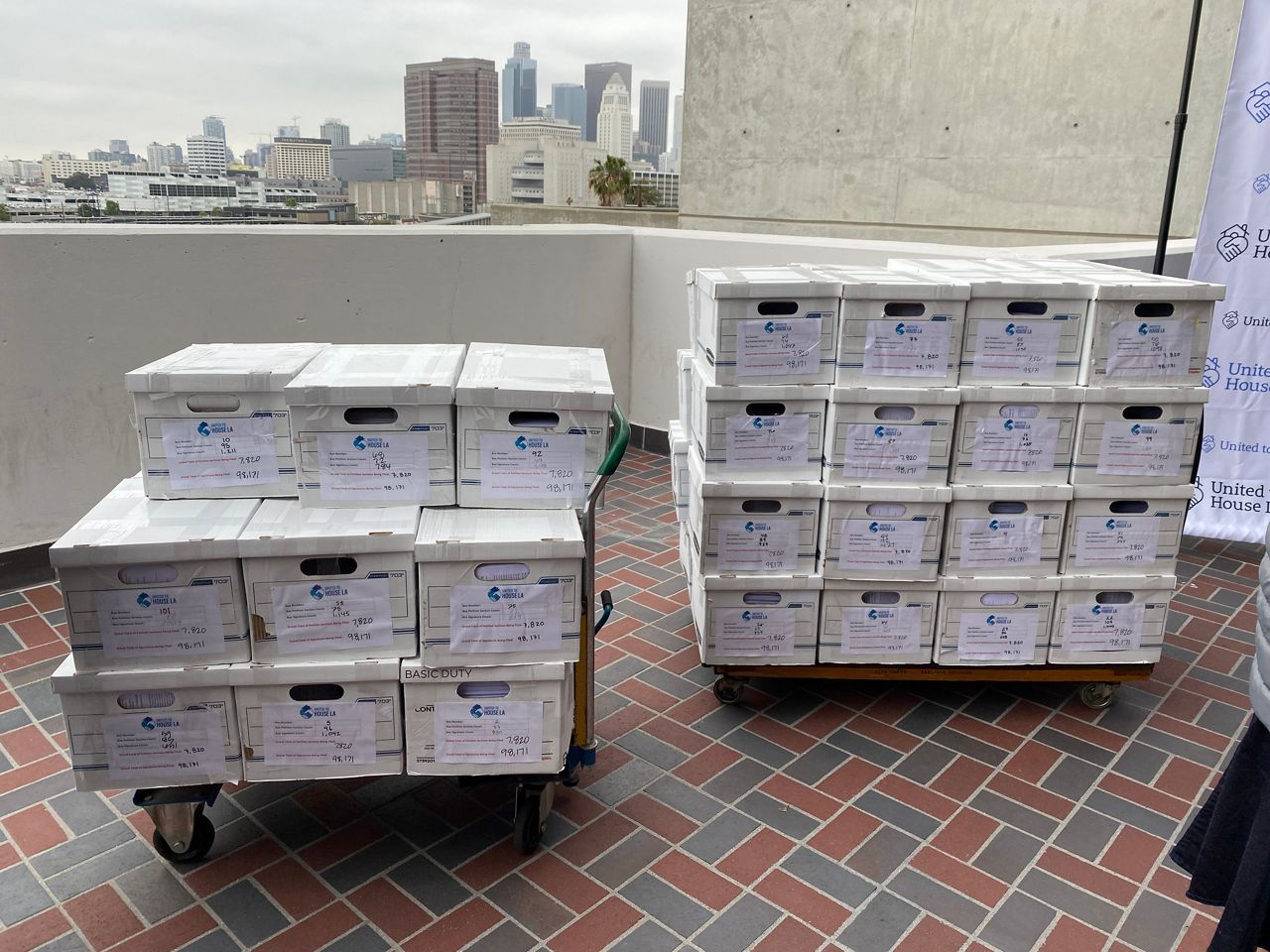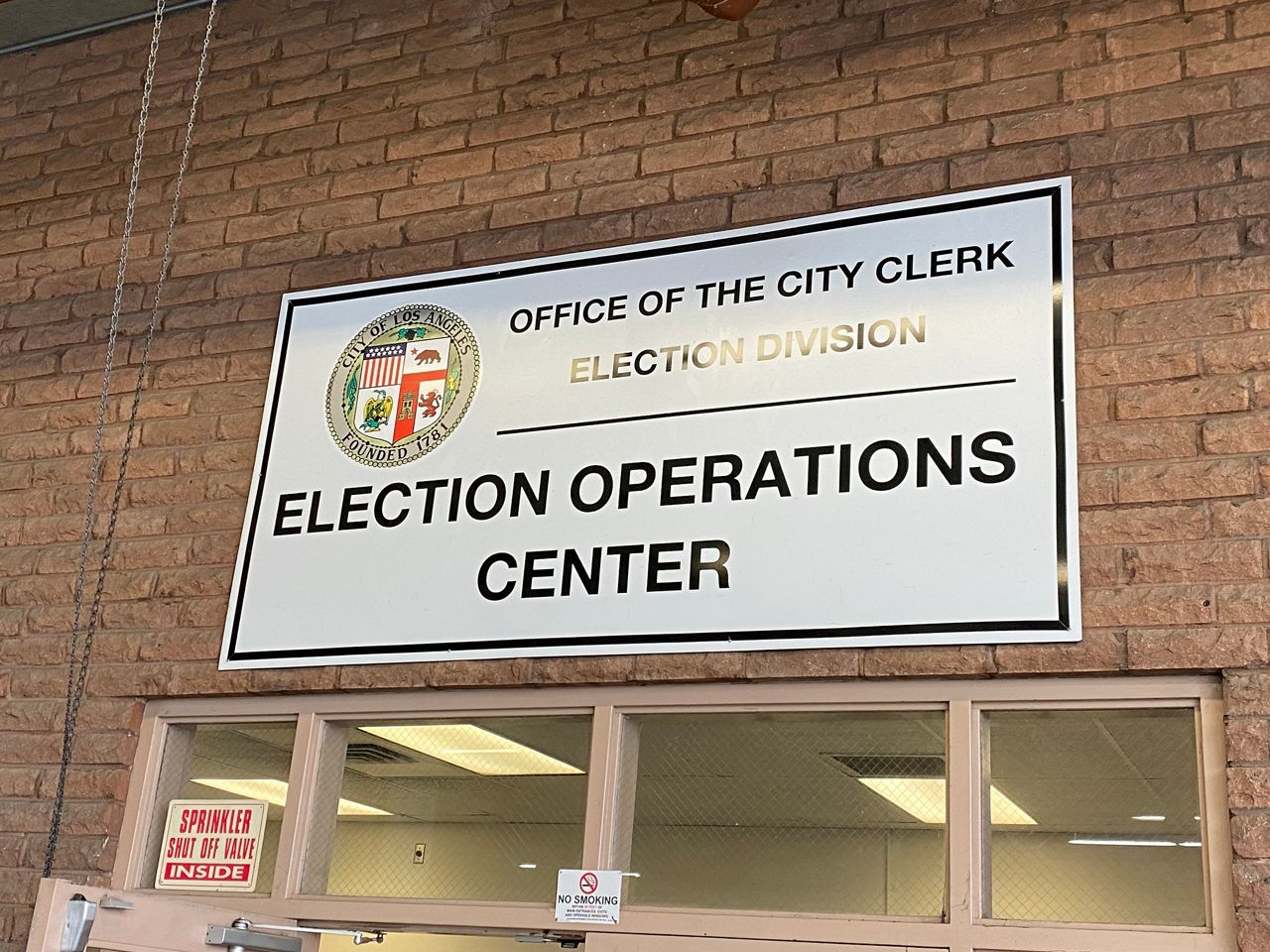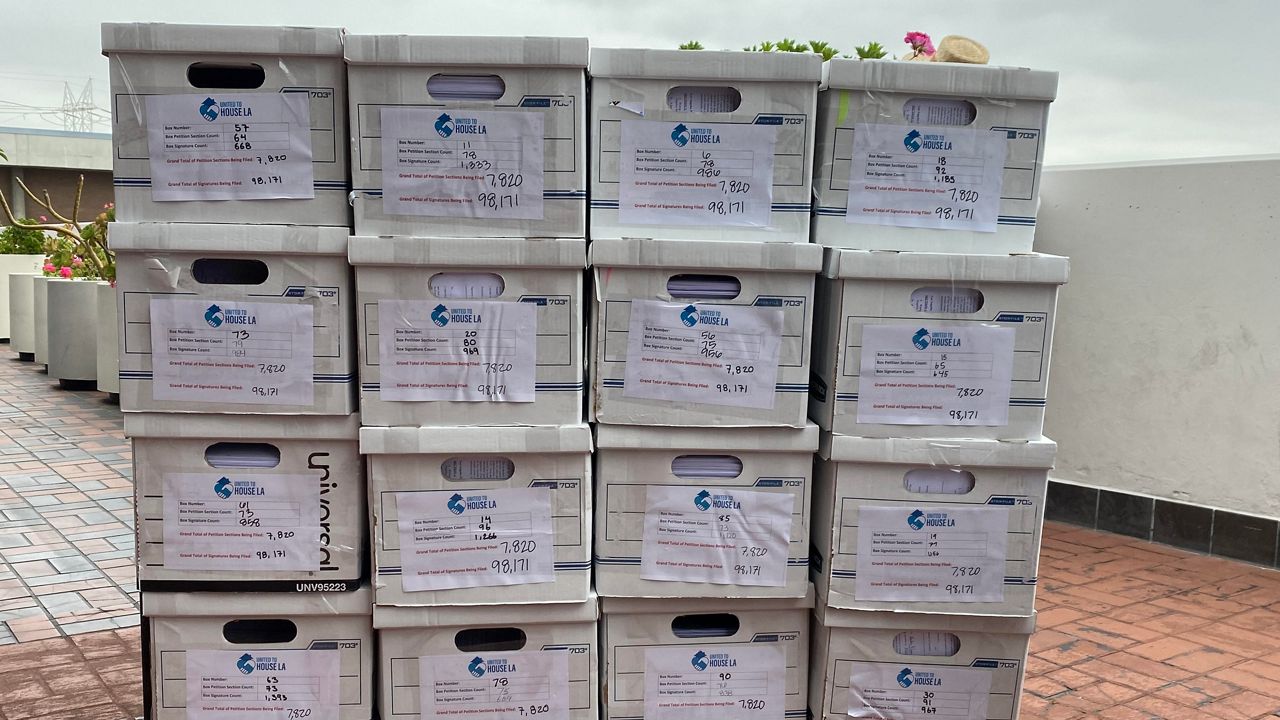LOS ANGELES — A measure that would tax Los Angeles mansion sales to fund affordable housing and homelessness initiatives has gathered enough signatures to qualify for the November ballot.
Backed by a wide-ranging coalition of labor unions, tenant’s rights groups, immigration activists and homeless services providers, United to House LA members announced the milestone during an event at the LA City Clerk Election Division office before dropping off dozens of boxes of signed petitions.
“Too many people are being displaced from their homes, and too many people are living in the street,” said Isela Ramos.
A housekeeper at downtown LA’s Millennium Biltmore Hotel, Ramos is a member of Unite Here Local 11, a union that represents more than 32,000 hotel, restaurant and airport workers in Southern California.
"Our members are mostly women and people of color. We are the backbone of the tourism industry, but my co-workers and I cannot afford to live in LA anymore," said Ramos.

Unite Here is one of more than 130 organizations that came together to support the ballot measure that would charge a 4% tax on property transfers valued between $5 and $10 million and 5.5% for properties valued at more than $10 million. Its backers say the measure would affect 3% of property sales in the city and raise about $875 million annually, or $8 billion over 10 years.
If a simple majority of LA voters approve the ballot measure in November, United to House LA will use the proceeds of the so-called mansion tax to buy and build new affordable housing. The measure will provide 69,000 affordable housing units for individuals who are homeless or at risk of becoming unhoused within its first 10 years, the group says.
“You can’t solve problems without having stakeholders at the table,” said Chris Hannan, executive secretary of the LA/OC Building and Construction Trades Council, which represents 140,000 building and construction workers in Southern California.
The council is part of the United to House LA coalition and a supporter of the ballot provision that would create 44,000 well-paying union construction jobs, prioritizing hiring for local and disadvantaged city residents.
“Over the last ten years, if we created housing that was affordable for 66,000 Angelenos, along with delivering 50,000 good-paying jobs, the streets of Los Angeles would look different today,” Hannan said.

The ballot initiative also includes tenant protection policies, such as direct income support for seniors and people with disabilities, and provides legal aid and outreach services to 475,000 renters annually who are at risk of losing their homes.
“Many of our members are workers in low-wage industries and are housing insecure,” said Alexandra Suh, executive director of the Koreatown Immigrant Workers Alliance, which is part of the United to House LA coalition. “In-town housing is the largest cost for the working class and one of the largest stressors in their lives.”
More than half of the jobs in Koreatown are in low-paying service sector industries such as car washes, garment factories, supermarkets and restaurants. While the minimum hourly wage in the city of LA is set to increase $1.04 in July, it is currently $15. The average rent for a one-bedroom apartment in the city in May is $2,395 — 23% more than it was a year ago, according to the rental website Zumper.com.
A 2021 study from the National Low Income Housing Coalition reported that the average minimum wage worker in California last year needed to work 89 hours a week to afford a one-bedroom rental at average fair market price. To afford an average one-bedroom in LA required an hourly wage of $30.87, or $64,200 annually. Fifty-four percent of LA residents are renters.
“Housing is a human right,” said Kath Rogers, a staff attorney with the Economic Justice Project at the American Civil Liberties Union of Southern California. “Tens of thousands of people are forced to live on the street in LA, and many more are one paycheck away from eviction. The housing crisis affects every neighborhood and every community in our city, but the crisis does not affect us all equally. It disproportionately burdens the most vulnerable members of our community.”
One in three unhoused individuals in LA are Black. Three in four seniors in the city also struggle to pay rent. One in three Angelenos with disabilities are extremely low income, said Rogers, whose organization endorses United to House LA.
More than 41,000 people experienced homelessness in the city of LA in 2020, according to the last count from the Los Angeles Homeless Services Authority. That number is likely to have grown during the COVID-19 pandemic, as incomes have failed to keep up with inflation and as housing, and rent prices have skyrocketed.
Related Stories
In 2016, LA voters approved $1.2 in bonds to triple the city’s annual production of supportive housing to 10,000 new units for unhoused Angelenos as part of Proposition HHH. Only a fraction of those units have so far been built at a cost of more than $500,000 apiece. The city’s proposed budget for the 2022-2023 fiscal year includes $1.16 billion to address what many are calling a crisis of homelessness in LA.
Despite the increases in funding, more than 63% of LA county residents said the homelessness crisis will get worse over the next year, according to a public opinion survey from the Center for the Study of Los Angeles released last month.
Not everyone agrees that United to House LA is the right strategy.
“While we support the desire to find solutions to solve homeless housing and provide wraparound services such as those that we have already supported in Measure H and Measure HHH, increasing taxes on real estate transactions sends the wrong message as it further increases the already high cost of housing in the region without addressing the core issue – that we are still in a housing production and affordability crisis,” the Greater Los Angeles Realtors said in a statement for Spectrum News 1, responding to the United to House LA ballot measure.
A GLAR spokesperson said the group is working with county and local governments to “strongly advocate for increased housing production to meet the demand for affordable and attainable housing across our region, and urge the city to use the billions of dollars already in hand from prior ballot measures and the state to help solve the homeless housing problem.”

For United to House LA to qualify for the November ballot, 61,076 signatures were required. The coalition gathered 98,171, which were submitted to the LA City Clerk’s office for verification Monday. Once it clears review, it is bound for the November ballot and a yay or nay from LA voters.
“This measure is very different from anything that has been done in LA in the past,” said United to House LA Co-Chair Laura Raymond. “We’ve never seen anything this broad before in LA to deal with this humanitarian crisis.”
